Yoga Sutra Wisdom: How Abhyasa and Vairagya Support Your Mental Health
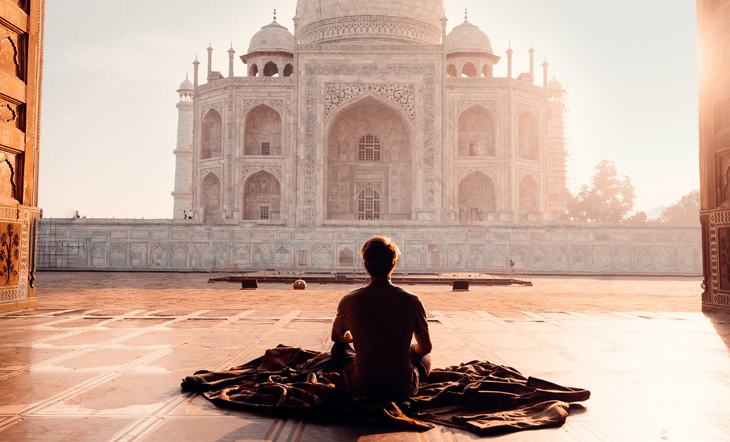
The Yoga Sutras are full of wisdom and guidance in the yoga world. These concepts have been passed down from the sage Patanjali, and the ancient text offers insights and often leads to great discoveries.
Many yogis uphold this ancient text as one of, if not the most, important text in the study and practice of yoga. The word sutra means “threads” of wisdom in Sanskrit.
20 Particularly Relevant Yoga Sutras Translated and Explained
While there are many aphorisms, or definitions, in The Yoga Sutras, one that can be particularly helpful on and off the mat is balancing Abhyasa and Vairagya.
Understanding Abhyasa and Vairagya
This is finding the balance of making and letting, of effort and ease. Abhyasa means diligent practice and Vairagya means non-attachment to this practice.
In the larger picture of life, this is the balance of making things happen versus letting things happen. It is possible to do both. Here’s how.
Yoga as a Laboratory
So often, as instructors and as students, we hear that what happens on the yoga mat is a mirror for what is happening off the mat.
In practicing asanas (yoga postures), we move through postures that can be physically demanding as well as ones that are gentler, more restorative.
Abhyasa means diligent practice and Vairagya means nonattachment to this practice.
Feelings and emotions are reflected in how we move on the mat. Your yoga practice offers a safe space to explore whatever feelings, emotions or thoughts arise as a result of movement.
In some physical yoga practices, there are often a sequence of yoga postures that lead to a peak pose followed by slowing down to ready the body for meditation and relaxation. This is finding the balance between Abhyasa and Vairagya.
This Is How to Find Inner Peace With Aparigraha (Non-Attachment), the Fifth Yama
However, some get hung up on the asanas themselves, and can lose sight of what the physical postures are actually for, thereby staying in making, or effort. The results of the physical postures become prioritized. Some can stay attached to the physical practice and are unable to move beyond the postures, losing sight of the true meaning of yoga.
We are so driven as a society and attachment to results, that results are taking precedence over mental health.
It is true that diligent practice and effort can pay off, but it is also true and equally important to let go of the results.
Improve Your Mental Health through Abhyasa and Vairagya
In life, we often – especially in this society – stay in the effort. We stay in productivity, making things happen. There is such an emphasis on work, that we often neglect self-care. We leave out the ease and wonder why the majority of the population is experiencing chronic stress.
We are so driven as a society and attachment to results, that results are taking precedence over mental health. Mental health and physical health have been on the decline due to stress. It is important to learn and utilize stress-management strategies.
To cultivate a sense of wellbeing requires balance. While work is necessary, so is self-care.
You Deserve a 7-Day Mental Health Break (Follow This Wellness Guide)
If we stay in the making, the daily grind, or have that overarching mentality, then finding ease, or becoming passive, takes a backseat. This can lead to chronic stress, leading to physical issues and mental turmoil.
Here Are 5 Ways to Find Balance In Your Yoga Practice:
-
- Find a healthy mix of more dynamic practices and gentler ones
- Cool down after a vigorous practice (try adding these poses to your cool down)
- Make modifications in practice when you need
- Practice balancing postures, finding both effort and ease like in this class
- Don’t skip Savasana Pose!
This Is How Yoga Affects Your Mental Health (According to a Holistic Psychotherapist)
Here are Ways to Find Balance In Life:
-
-
- Make time for work and play
- Have a support system in place
- Find things that nourish and feed you
- Have downtime every single day
- Honor what you need mentally, physically, and emotionally
-
Here Are 8 Ways to Boost Your Mental Health Today (And Keep It That Way)
Integrating Abhyasa and Vairagya: Your Mental Health Will Thank You
There are many parallels in yoga practice and life. Finding both effort and ease is hard to do simultaneously, both on and off the mat.
In their book, Teaching Yoga Beyond the Poses, Sage Rountree and Alexandra DeSiato devote an entire theme related to this sutra. There is an emphasis on how each of the concepts can coexist to find balance. In practice, they recommend paying attention to what areas of your body need to work in postures as well as what parts need to relax.
Relationship Struggles? Turn to the Ancient Yogic Wisdom of Abhyasa and Vairagya for Guidance
Focusing on where you put your effort as well as ease can be beneficial and contribute to overall health and wellbeing. Finding homeostasis, or balance in the body, is essential to physiological and psychological wellbeing.
Research has shown that those who rest more are able to be more alert and more productive.
Take an inventory of your life to see where you can make things happen, and let them happen. Your mental health depends on it!
Remember, you are not alone! If you need support, National Alliance on Mental Health (NAMI) is a great resource. Visit nami.org or call their helpline: 800-950-NAMI
All included information is not intended to treat or diagnose. The views expressed are those of the author and should be attributed solely to the author. For medical questions, please consult your healthcare provider.


This Month's Letter
From the Editor
Monthly motivation and food for
thought from our founder.






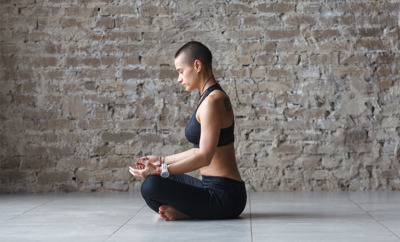




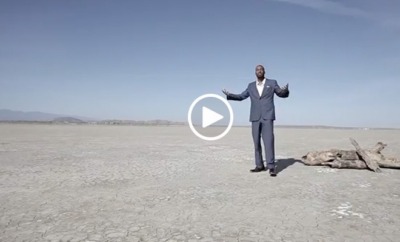

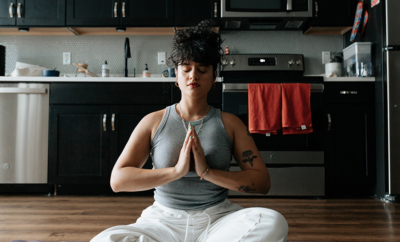








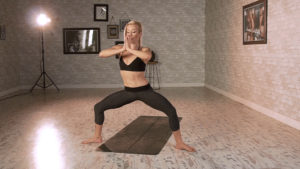

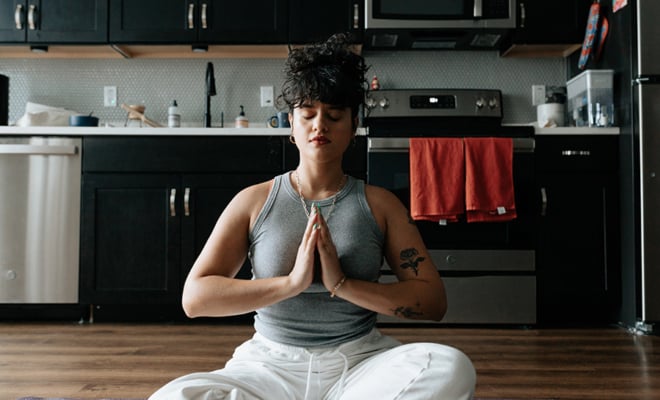




Comments